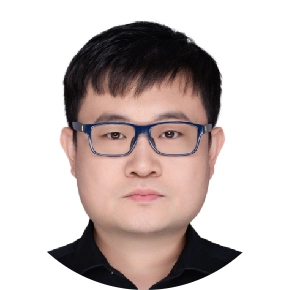
Shenzhen Institutes of Advanced Technology, Chinese Academy of Sciences, China
Biography: Yan Pang, Ph.D., serves as an Associate Professor
at Guangzhou University after earning his doctoral degree
from the University of Colorado, USA. Prior to his present
position, he was an instructor at the Metropolitan State
University of Denver and the University of Colorado Denver.
His primary research revolves around computer vision, where
he conducts systematic theoretical research and practical
applications, particularly in computer vision, medical image
analysis, on-device models, behavior recognition and
analysis, blockchain, et al. Over the past two years, he has
been granted 3 national and provincial-level projects. Dr.
Pang has published more than 20 papers in SCI/SSCI indexed
journals, including IEEE TMI, IEEE TIFS, TSMCS, TNNLS, TIM,
et al., and 20
patents. His significant contributions have been applied
practically in diverse sectors such as medicine,
agriculture, and security, making a substantial impact in
their intelligent evolution.
Speech Title: "Advancing Healthcare with Large Language
Models: Applications, Challenges, and Future Directions"
Abstract: Large language models (LLMs) have gained
significant attention for their capacity to understand and
generate human language, leading to increasing adoption in
various medical fields such as clinical diagnostics, medical
education, drug discovery, and patient care. However,
despite these advancements, a thorough evaluation of their
development, practical deployment, and real-world impact in
healthcare remains scarce. This seminar offers an in-depth
review of LLMs in medicine, covering essential aspects such
as model architectures, parameter scales, and data sources.
We will examine their application in diverse medical tasks,
including improving diagnostic accuracy, supporting
personalized treatment plans, optimizing medical
documentation, and advancing medical research. While LLMs
show immense potential, their integration into healthcare is
not without challenges, including concerns over data
privacy, model interpretability, and inherent biases in
training datasets. This seminar will critically address
these issues, presenting a balanced analysis of both the
benefits and limitations of LLMs in clinical settings.
Additionally, we will explore ongoing research efforts to
overcome these challenges and provide insights into the
future of AI-assisted healthcare.

National Institute of Informatics, Japan
Ching-Chun Chang received his PhD in Computer Science from
the University of Warwick, UK, in 2019. He participated in a
short-term scientific mission supported by European
Cooperation in Science and Technology Actions at the Faculty
of Computer Science, Otto von Guericke University Magdeburg,
Germany, in 2016. He was granted the Marie-Curie fellowship
and participated in a research and innovation staff exchange
scheme supported by Marie Skłodowska-Curie actions at the
Faculty of Computer Science, New Jersey Institute of
Technology, USA, in 2017. He was a Visiting Scholar with the
School of Computer and Mathematics, Charles Sturt
University, Australia, in 2018, and with the School of
Information Technology, Deakin University, Australia, in
2019. He was a Research Fellow with the Department of
Electronic Engineering, Tsinghua University, China, in 2020.
He is currently a Project Assistant Professor with the
National Institute of Informatics, Japan. His research
interests include artificial intelligence, biometrics,
communications, computer vision, cryptography, cybernetics,
cybersecurity, evolutionary computation, forensics,
information theory, linguistics, mathematical optimisation,
natural language processing, privacy engineering,
psychology, signal processing, steganography, time series
forecasting, and watermarking, within the scope of computer
science.
